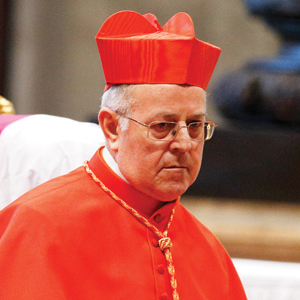In visits to two countries last week in which Catholics are tiny minorities – 659,000 out of a population of 55 million in Buddhist-majority Myanmar; 375,000 out of 163 million in Muslim-majority Bangladesh – the Pope’s commitment to peace through dialogue was put to one of its most severe tests.
On arriving in Myanmar on Monday 27 November, Francis had been urged to challenge the government, its military and its de facto leader, Aung San Suu Kyi, about their treatment of the Rohingya Muslims. More than a million Rohingya have fled to neighbouring Bangladesh since the army launched a brutal campaign of ethnic cleansing in response to attacks by Rohingya militants on security posts.
The Myanmar authorities do not recognise the ethnic group as nationals, insisting that they are “Bengalis” although they have lived in Myanmar for generations. So sensitive is the term that even the country’s first cardinal, Charles Maung Bo, pleaded with Francis not to use the word for fear of the repercussions it might have.
In the event, Francis departed from protocol and spoke first with the top general, Min Aung Hlaing. The next day, in a speech at a convention centre in Nay Pyi Taw, the capital, he used diplomatic language, calling for a process of “peace building and national reconciliation” that was based on a “commitment to justice and respect for human rights.”
On the plane back to Rome from Dhaka at the end of his two-state visit, the Pope told journalists he had refrained from mentioning the Rohingya Muslims in public to avoid “slamming the door” on dialogue. “The General asked to speak and I received him. I never shut the door. Who wants to talk comes. One can’t lose anything by talking. You can only gain,” he said.
In refusing to use the word Rohingya publicly in Myanmar, the Pope lent tacit support to Aung San Suu Kyi, the Nobel Laureate who has been heavily criticised for not doing more about the crisis. During the in-flight press conference, the Pope refused to offer any negative judgments on her.
After leaving Myanmar for Bangladesh, however, on Friday 1 December, the Pope asked a group of Rohingya Muslims to forgive the world’s indifference to their plight and for the first time on his six-day South Asia tour used their ethnic title.
Earlier, on Wednesday 29 November, at the first public Papal Mass in Myanmar at the Kyaikkasan Ground in Yangon, Francis urged Myanmar’s Catholics not to give in to anger and revenge, which he described as “deeply flawed”.
Later that day at the Kaba Aya Centre, the national headquarters of Buddhism, Francis took off his shoes and sat opposite a group of Buddhist elders who make up the state-appointed “Sangha” committee of monks that oversees Buddhist activities in the country. The Pope called for closer co-operation to overcome prejudice and hatred while the country’s most senior monk issued a firm condemnation of terrorism.
This arose “from bad interpretations of the original teachings of religions”, Venerable Bhaddanta Kumarabhivamsa said. He did not cite any specific religion, but anti-Islam sentiment is strong in Myanmar, as is a fear that terrorism is being brought into the country by Muslims.
On the last of his three days in Bangladesh, the Pope went to a home in Dhaka that Mother Teresa founded in the early 1970s for Bengali women who had become pregnant as a result of being raped by Pakistani soldiers during the country’s war of independence. Francis praised Bangladesh for having what he called some of the best interreligious relations in the world.


 Loading ...
Loading ...